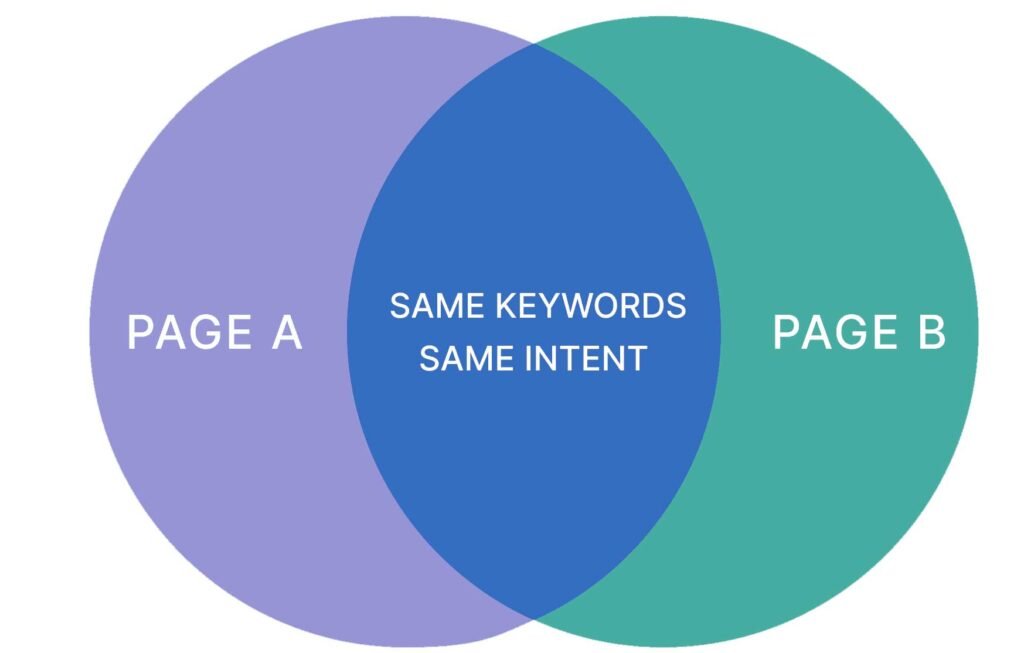Keyword Cannibalization occurs when multiple pages on a website target the same or very similar keywords, causing them to compete against each other in search engine rankings. Instead of one strong page ranking well, multiple pages split the ranking signals (e.g., backlinks, content relevance, and user engagement), leading to lower visibility for all of them.

Why It’s a Problem:
- Diluted Rankings: Search engines may struggle to determine which page is most relevant, causing none to rank highly.
- Poor User Experience: Visitors might find multiple similar pages, leading to confusion or frustration.
- Wasted SEO Efforts: Instead of consolidating authority on one optimized page, efforts are spread thin.
Common Causes:
- Multiple product/service pages targeting the same keyword.
- Blog posts with overlapping topics.
- Poor internal linking structure.
- Lack of clear content differentiation.
How to Fix It:
- Audit Your Content: Use tools like Google Search Console or Ahrefs to find competing pages.
- Consolidate or Merge Pages: Combine weaker pages into a stronger one.
- Optimize for Different Keywords: Adjust targeting (e.g., long-tail variations).
- Use Canonical Tags: Indicate the preferred version for search engines.
- Improve Internal Linking: Direct link equity to the most important page.
